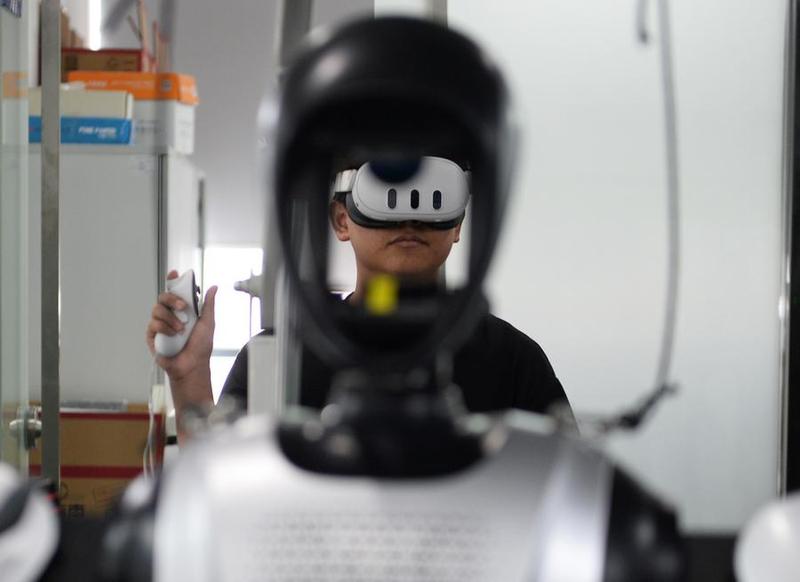Manufacturing, services to further integrate


China has released a new four-year plan to accelerate the integration of advanced manufacturing with modern services, aiming to make "service-oriented manufacturing" a key driver of high-quality industrial growth by 2028.
Service-oriented manufacturing is a business model where manufacturing companies integrate high-value services, like maintenance, installation and operational support into their offerings beyond just selling a physical product.
The plan, jointly issued by the Ministry of Industry and Information Technology and six other government departments, sets targets to establish 100 innovation hubs, build 50 leading brands and formulate 20 national standards for the sector.
By 2028, China expects service-oriented manufacturing to play a more prominent role in strengthening the country's industrial base and modern industrial system.
The plan identifies several structural challenges, including weak technological capacity, an incomplete standards system, uneven adoption across industries, and difficulties in statistical monitoring.
To address these, the MIIT has outlined seven major tasks and three special initiatives to promote innovation, technological breakthroughs and broader adoption of new models.
The MIIT said it would publish a list of key common technologies for service-oriented manufacturing, encourage joint R&D and speed up the upgrading of proven business models.
It also pledged to strengthen the role of producer services, including industrial design, software, financial and intellectual property services, to provide stronger support for manufacturing transformation.
The plan calls for differentiated promotion across sectors such as raw materials, equipment, electronics, and consumer goods, while deepening integration in areas like new-energy vehicles, construction machinery and telecom equipment. It also aims to improve efficiency and quality in traditional sectors such as steel, petrochemicals, pharmaceuticals and shipbuilding.
Notably, China will further build up its digital infrastructure by expanding the use of 5G and industrial internet, deploying computing power networks based on demand and fostering the integration of artificial intelligence with service-oriented manufacturing. The plan also emphasizes the need for network and data security.
Among such efforts, the plan includes efforts to develop shared manufacturing platforms and factories, enhance the brand competitiveness of leading enterprises and promote innovative demonstration projects for integrated application scenarios — ranging from production and consumption to major national strategies.
To support implementation, the plan calls for stronger policy and financial backing. It encourages local governments to offer fiscal incentives and fair access to resources, and urges commercial banks and government funds to expand financing support in line with market principles.
Jia Guozhu, a professor at Beihang University's School of Economics and Management, said: "Through service-oriented manufacturing transformation, companies can optimize resource allocation, replace traditional inputs with service elements and open up new growth paths. By increasing service revenue, firms can boost profitability and overall enterprise value."




































